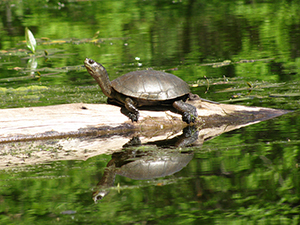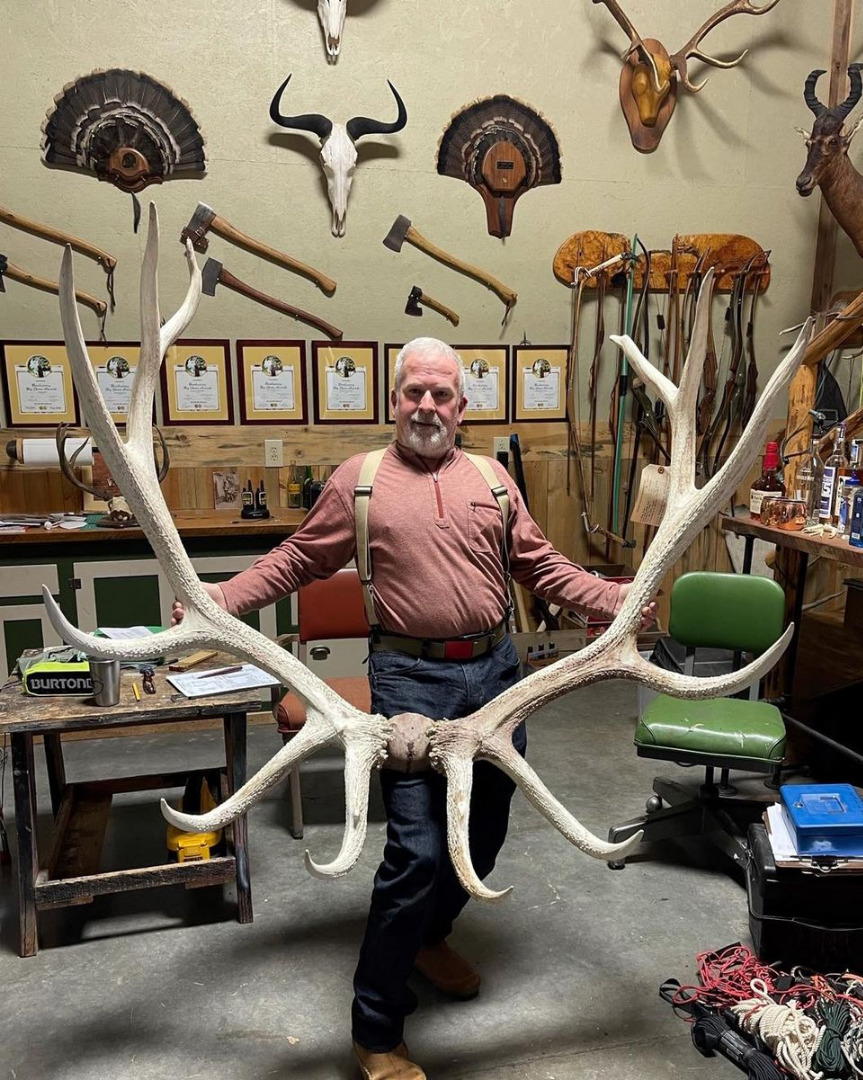From Sportfishing
Fish Report for 11-24-2021

Protect Oregon's native wildlife and think carefully about gift-giving certain pets
11-24-2021
OR Department of Fish & Wildlife Staff
Salem, Ore.— Illegal wildlife trafficking thrives during gift-giving seasons, especially with small, difficult-to-track animals like turtles and reptiles.
If you are giving the gift of a pet turtle or other animal this year, you can help to reduce the illegal wildlife trade by making sure the animal you choose is legal to keep as a pet in Oregon and not a prohibited species. Review a full list of prohibited species or call your local ODFW office if you are unsure what species are legal.
Some species of non-native turtles are illegal to possess because they are a threat to Oregon's native turtles and other wildlife if they escape or are released into the wild. Many invasive turtle species grow twice as big as native turtles. They compete for limited resources, lay more eggs, and spread diseases that harm native turtles.
Whether shopping at a brick-and-mortar business or perusing Craigslist and other online vendors, it's important to properly identify an animal before bringing it home. For example, red-eared sliders are a common turtle species kept as a pet, but they are an invasive species in Oregon and illegal to possess, buy, sell, give away or bring into the state. Common legal species include tortoises, box turtles, and a few non-native water turtles such as the African sideneck turtle. Common prohibited species include other slider species native to the United States and snapping turtles.
There is more to consider when making the decision to bring any new pet home. Baby turtles certainly are cute. However, it's hard to take care of pet turtles (especially aquatic turtle species). Most grow to be 10 or more inches and can live more than 50 years, out-living the interest of many pet owners, even those with the best intentions. Housing requirements for aquatic turtles are also spendy. Add up the ongoing costs of tanks, filters, UVA/UVB bulbs and other necessities and it may prompt some rethinking.
Salmonella is also a risk with turtles and reptiles. They can spread it to humans and bring unpleasant repercussions to holiday festivities.
Taking native animals from the wild is illegal. Doing so removes an important individual from the ecosystem and breeding population, interrupting the food chain and jeopardizing the future survival of the species. Oregon's native turtles (western painted turtle and northwestern pond turtle) are protected and cannot be taken out of the wild. Captive-bred or captive-reared native turtles also cannot be possessed or kept as pets in Oregon. Regulations do not distinguish between wild and captive-reared – they're both illegal to keep.
So brush up on your identification skills and be sure you know what species can legally be kept as pets in Oregon. Don't take any animal from the wild. If you purchase from a pet store or online seller, ensure the sale is legal and follows state regulations for the sale of reptiles, amphibians and other animals.
There are rewards for turning in people who skirt wildlife laws - including illegally breeding, holding and selling native wildlife, and releasing non-native species into Oregon's waterways, forests or prairies. Poaching isn't just illegally shooting a deer or an elk. It's the illegal killing, taking or holding of any native species. That includes animals like native pond turtles, ducklings, salamanders, owls, and any other wildlife. If you suspect a wildlife crime or habitat destruction, please contact OSP by calling *OSP (*677) or the TIP Line at 800-452-7888.
Make your list, check it twice and let's work together to leave Oregon's wildlife wild and reduce the illegal wildlife trade this holiday season.
Learn more about native and non-native turtles in Oregon at www.dfw.state.or.us/wildlife/living_with/turtles.asp.
< Previous Report Next Report >
More Reports
OR Department of Fish & Wildlife Reports
for Wednesday, November 24th, 2021• ODFW Recreation Report
Umpqua River: North Umpqua River reopens to angling
John C Boyle Reservoir: Fishing is slow due to very cold water temps
Miller Lake: Access might be challenging due to snow
Agate Lake: Agate Lake is still hovering around 10 percent capacity, but slowly filling
Applegate Reservoir: The only useable boat ramp at Applegate Reservoir is the French Gulch Boat Ramp
Applegate River: The river is open to trout fishing through the end of the year
Arizona Pond: Slow. The pond is now full from fall rain, but is still a bit weedy
Ben Irving Reservoir: Ben Irving might be worth a try this weekend
Bradley Lake: Trout fishing has been good
Butterfield Lake: Butterfield Lake Fishing Report
Chetco River: Temporary rule changes for wild adult Chinook are now in place Aug. 31-Dec. 31
Cooper Creek Reservoir: There should be lots of leftover trout still available
Coquille River: The next big rain could bring the first steelhead up the Coquille River
Elk River: A good number of Chinook have had a chance to distribute throughout the river
Howard Prairie Reservoir: Zone regulations are back in place
Hyatt Lake: Emergency regulations have been lifted at Hyatt Lake and zone regulations now apply
Pistol River: Fish have had a chance to move into the river system
Rogue River- Lower: A good number of fish have moved into tributaries
Winchuck River: Fall rain has encouraged a good number of fish upstream into the river system
Alsea River: Winter steelhead typically start to show up in the Alsea River at the end of November
Siletz River: Winter steelhead typically start to show up in early December on the Siletz
Siuslaw River: The majority of the hatchery fish in the basin are headed to Whitaker Creek
Yaquina River: Winter steelhead will start to show up in the Yaquina basin
Clackamas River: Anglers can still find some dark coho around
Eagle Creek: Currently conditions are low and clear
Gold Lake: Gold Lake is now closed for the season
Hills Creek Reservoir: Hills Creek Reservoir Fishing Report
Sandy River: Dark coho are now throughout the system

11-22-2021
The antlers of a Union County bull elk have been officially scored at 406 6/8 which would make it the...... Read More

Website Hosting and Design provided by TECK.net